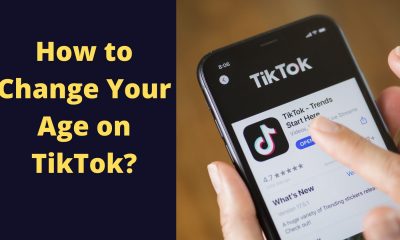Intermittent Fasting: What are 16/8 Fasting Results in 1 Month?

Have you recently started intermittent fasting but want quick results? Don’t worry; this article will help you realize the 16/8 fasting results in 1-month to make the best decision for your health. Let’s get started!
16/8 Fasting Results in 1 Month
Intermittent fasting is one of the popular dietary regimens followed these days to lose weight and improve overall health. One of the most common intermittent fasting methods is the 16/8 method, where you fast for 16 hours and eat within an 8-hour window every day.
In this article, we will discuss what intermittent fasting is, how 16/8 fasting works, potential results and benefits you can experience from following this diet, things to keep in mind while fasting, and more.
What is Intermittent Fasting?

Intermittent fasting involves alternating between periods of fasting and eating. The basic idea is that you limit your eating times to a specific window each day and fast for the remaining time.
During the fasting period, you consume zero calories or just water and unsweetened drinks. There are different intermittent fasting methods, but 16/8 is one of the more popular ones due to its flexibility.
How Does 16/8 Fasting Work?

In the 16/8 method, you fast for 16 hours every day and consume all your calories within an 8-hour window. For example, you can stop eating at 8 pm and then not eat again until 12 pm the next day, thereby completing your 16-hour fast.
During the 8-hour eating window, you can eat normal meals and snacks. You are free to choose what 8-hour window works for your schedule, but it’s important to stick to the same window daily.
Potential 16/8 Fasting Results in 1 Month
16/8 fasting is world-renowned due to its incredible benefits. Here’s how you can benefit from 16/8 fasting in the long run.
- Weight loss
- Improved insulin sensitivity
- Lower disease risk
- Enhanced mental focus
Weight Loss

Many people follow 16/8 fasting to lose weight in a healthy, sustainable way. Restricting your eating to a limited window can help you naturally reduce your calorie intake. Studies have shown this type of intermittent fasting to be effective for weight loss.
Improved Insulin Sensitivity
Fasting helps improve your body’s response to insulin over time. This means your cells become more efficient at absorbing glucose from the blood, which is great for managing blood sugar levels and reducing the risk of diabetes.

Lower Disease Risk
Intermittent fasting may offer protection against diseases like heart disease and cancer due to various benefits like weight loss, improved insulin sensitivity, lower inflammation, and others. Research on this area is still ongoing.
Enhanced Mental Focus
Some people notice they have higher energy levels and mental clarity while intermittent fasting. This could be due to increased production of human growth hormone and other beneficial effects on the brain.
Potential Side Effects of 16/8 Fasting in 1-Month
While there are benefits, many people have also witnessed some side-effects of intermittent fasting in the long run. Here are some potential side-effects that you should be aware of:
- Hunger and Irritability
- Dizziness
- Nutritional Deficiencies
Hunger and Irritability
In the initial weeks, you may feel more hungry or irritable as your body adjusts to the new eating pattern. This usually subsides as you get used to intermittent fasting.
Dizziness

If you have a medical condition or take medications, you should check with your doctor before starting 16/8 fasting, as it can potentially cause dizziness in some cases due to low blood sugar.
Nutritional Deficiencies
If not planned well, intermittent fasting could potentially lead to deficiencies in important nutrients. It’s important to make sure you meet your daily needs even during the restricted eating window.
What to Eat During the 8-Hour Window

To reap the maximum benefits of 16/8 fasting, it’s important to choose nutritious whole foods during your eating window. Some good options include:
- Lean proteins like eggs, chicken, fish, beans, lentils, etc. This helps keep you full and maintains muscle mass.
- Eat fruits and veggies to get essential vitamins, minerals, antioxidants, and fiber. Berries, citrus fruits, and green leafy veggies are great choices.
- Healthy fats like olive oil, avocado, nuts, and seeds satisfy hunger. Omega-3 fatty acids also have various health benefits.
- Whole grains like oats, quinoa, and brown rice in moderate portions to fuel your body.
- Plenty of water to stay hydrated, especially during the fasting period. Herbal teas and black coffee are also allowed.
- Avoid processed foods, sugary items, and unhealthy fats as much as possible. Aim for high-quality, nutritious options in your eating window.
How Long Can You Do 16/8 Intermittently Fast?
Most health experts agree that 16/8 intermittent fasting done 2-5 times a week is generally safe for healthy individuals. However, those with a medical condition should check with their doctor before incorporating any changes to their eating pattern.
16/8 fasting can be followed for the long term by making it a sustainable lifestyle. But it’s a good idea to periodically take a break and assess how your body responds. Overall, intermittent fasting is a flexible approach that can fit well with most lifestyles when done appropriately and under medical guidance.
In Conclusion
Intermittent fasting, especially the 16/8 method, is a convenient way to lose weight, improve metabolism, and reduce disease risk factors when combined with a nutritious diet. Following intermittent fasting has various potential benefits but also requires some adjustments in the start.
With patience and by choosing the right foods to eat during window, it can become a healthy lifestyle. But those with medical issues must consult a doctor before adopting this regimen long term.

-

 Informative3 years ago
Informative3 years ago21 Amazing Fruits That Are Not Round
-

 Science3 years ago
Science3 years agoHow To Make a Dry Ice Bomb at Home? Risks and Precautions
-

 How to3 years ago
How to3 years agoHow to Put a Tampon On: Step by Step Guide
-

 How to3 years ago
How to3 years agoHere’s How to Know When The Oil Cartridge Is Empty
-

 Informative3 years ago
Informative3 years agoElf Ear Surgery: Cost, Procedure, and Risks
-

 How to3 years ago
How to3 years agoFixed: The Torrent You Are Trying To Add is Already in The List
-

 How to3 years ago
How to3 years agoHow To Thaw Frozen Pipes Underground
-

 How to3 years ago
How to3 years agoSolved: How to Change Your Age on TikTok? (2021)